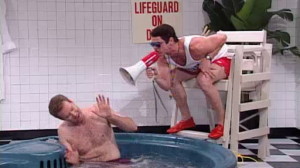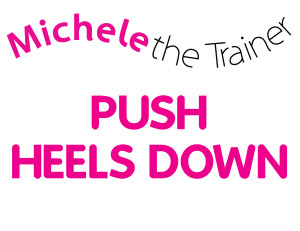Nobody Listens from the Pool, because Warm Water is Super Fun
Nobody Listens from the Pool, because Warm Water is Super Fun
Water Professionals, this one’s for you.
If you work in or near warm water, let’s face facts, the minute your clients feet hit the water, their ears turn off. We will call this “Wet Off”. Because hey, warm pool and warm ocean is amazingly fun and feels delicious!
We know about outdoor water acoustics (wind, surf, boat engine, etc.) and we know about indoor pool acoustics having inherent sound engineering issues, but there is something much simpler going on.
Warm water is relaxing and fun, and once your people are in, a percent of them will take off mentally to the Bahamas. That’s not always a bad thing, but it’s something that we need to recognize to get their attention.
Some folks might be hearing impaired, be wearing ear plugs to avoid water in the ears, a cap, a hood, some might have water in their ears already, and I’ve never known of a waterproof hearing aid, so those get left behind. “What?” 🙂
<<Years ago, I was teaching an outdoor evening pool class at an estate, and the client’s mother’s (Bubbie’s) hearing aids got chewed up by their little doggie. From the darkness on deck, I heard, “Crunch Crunch Crunch, Crunch Crunch Crunch”, because she left them on the patio table. That was an expensive snack. Longer story there.>>
Lifeguards have used megaphones, horns and whistles for good reasons! They need that to gain attention.
As instructors, we want to avoid sounding like one of those megaphone cars that drive the streets of third world countries to announce meaningless sales and political announcements. If you’re ever had a hangover on an island, you know the announcement cars I’m talking about.
SCUBA instructors teach first in a DRY classroom, and then generally take certification students to a barren underwater area to complete certification because they know they want all eyes on them, not on that pod of colorful fish or dolphins swimming by.
After years of running around like a banshee at the pool for attention, I encourage you to talk to your students when they are dry. Even if it’s only on their way to the water, it’s just a stronger plan. If you only catch a few of them before they get in it’s still more efficient. I give a tip to each person on their way in, and it really makes a difference. In this way you avoid the “Wet Off” syndrome. You can offer a tip about posture or intensity or muscle engagement. Think about what’s hard to communicate while you’re teaching class, and use those dry seconds to sail that point home.
I do it all and it all works, but after analyzing this for years, a few seconds of dry communication conserves energy. Some students are visual, some are auditory. I have signs that I use that work well sometimes (see the graphic, I have several signs and the students love them–and yes I add the PLEASE verbally several times), but after they’ve seen them a few times they can easily gloss them over as well. Here are some other tips on relating to students from deck, that I wrote for Aquatic Exercise Association in 2009. Enjoy, and let me know what works for YOU!
AKWA www.aeawave.com – April – May 2009 | Mopping the Deck: Relating with Aquatic Students from the Deck Part 1 –
Want to Know More?
877-409-1758









